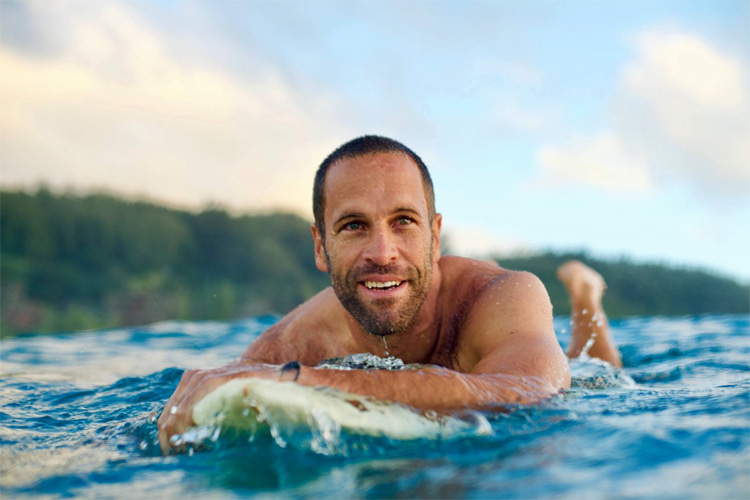How surfing shaped Jack Johnson’s music career

A wipeout changed Jack Johnson’s life. Here’s how the young man who once dreamed of becoming a pro surfer went on to sell over 25 million album copies.
Call it destiny or fate, but life can sometimes throw you unexpected surprises.
Today, Jack Hody Johnson is a successful singer-songwriter with a solid, award-winning career.
His name is definitely more associated with music than surfing. But it was not supposed to be like that.
“I never dreamed I was gonna have a musical career,” Johnson once said.
“It was just one of my favorite hobbies. It was like surfing first, and when the waves were drunk, I’d play guitar.”
“I think it’s healthy to wonder how I got here and if I even deserve to be here. There’s so many little lucky weird things along the way that just lead up to it.”

Ocean Genes
It all started in California. His surfer father, Jeff Johnson, after the birth of Jack’s oldest brother, decided to learn how to sail.
“My oldest brother was just born, and my dad always joked that he decided to learn how to sail, so he got in a boat that he’d fixed up, and he sailed to Hawaii by himself.”
“He spent the summer just fixing up this whole boat, and from what I can gather, he got the boat, and he had been sailing up and down the coast enough that he was somewhat ready, but he always said he definitely wasn’t at a point where he should have sailed to Hawaii by himself.”
Despite not being fully prepared, Jeff sailed from California to Hawaii by himself.
The solo journey across the Pacific Ocean was a significant undertaking for him, as he was just 20 years old at the time.
Jack Johnson was born on the North Shore of Oahu, Hawaii, on May 18, 1975. He started surfing at the age of five.
At 13, he was a finalist in the Menehune division of the 1988 US Championships, and at only 17, Jack made history as the youngest surfer to reach the finals of the 1992 Pipeline Masters trials.
His close friendship with future surfing legend Kelly Slater solidified his status as one of Hawaii’s up-and-coming stars.

The Pipeline Wipeout
However, a life-altering surfing accident at Banzai Pipeline shifted his trajectory.
“I went on a wave I’d gone on a million times,” Johnson once recalled.
“There’s this moment when a wave closes out; it’s like the air needs to get pushed somewhere, and it kind of opened up a little spot where I just unfortunately dove right into a coral head.”
“Just felt my face just went straight into what felt like cement.”
“I was aware the whole time I was underwater, thinking, ‘You just hit your head really hard, and you need to swim,’ but I couldn’t swim.”
“I was in this state of just floating and thinking, and then at some point, I just decided to take a breath, and I was underwater, and when I sucked the water in, it woke me up, and I got to the surface and then just felt around and I felt no teeth, and I felt kind of my finger went up into this spot my head, like sort of this gaping hole.”
No Surf, Just Composing
While recovering from a severe injury that left him with multiple stitches and missing teeth, Johnson turned to his other passion: music.
During this period, he honed his guitar skills, aided by tablature books his mother provided.
“It was a pretty major shift in my life,” noted the surfer musician.
“Looking back, I think I also wanted to write off that it wasn’t that close to a near-death experience, but when I think back, it was definitely drifting underwater, losing consciousness, and it was pretty traumatic, I think.”
“But it was funny how the next few months I wasn’t able to surf much, so my mom was really sweet about giving me a lot of these tablature books so that I could learn how to play different guitar songs and stuff.”
“I think it was a good little wake-up call of, like, well, maybe I will just follow that college path.”

The Filmmaker Years
Johnson’s time at the University of California, Santa Barbara, where he majored in film studies, further shaped his creative path.
“I had this film degree and knew how to load a 16-millimeter camera and all that kind of stuff, but it was kind of hard to figure out what I was going to do.”
“Camped out, we made surf movies, I got to surf quite a bit too. Best couple of years of my life I got to travel.”
He immersed himself in the world of surf films, serving as a cinematographer for iconic projects like “September Sessions” and “Thicker Than Water” alongside Chris Malloy.
Johnson’s unique 16 mm footage gave these films a distinctive aesthetic, but it was the soundtracks featuring his original music that truly set them apart.
“We always had guitars around; I was writing songs on the trips, so when we were doing the edit for ‘September Sessions,’ we had all the songs in place.
“And then right at the end, there was a song that we weren’t able to get the rights for, and luckily everybody who was involved with making the film was like, ‘Put that one ‘F-Stop Blues’ in that you wrote on the trip.”
“My instinct was like, ‘no, I’m the filmmaker. It seems weird to like be pushing my own music in the film.'”
“And it’s funny thinking back that I would have been fighting it, but for a moment, I was like, ‘I feel weird putting my own voice, but it was like, You gotta do it.'”

F-Stop Blues
The inclusion of Johnson’s song “F-Stop Blues” in “September Sessions” is a critical moment in the Hawaiian’s life.
The exposure Jack Johnson allowed of himself planted the seeds for the growth of a fan base within the surf community.
The momentum also eventually caught the attention of musician Ben Harper, who invited Johnson to open for him on tour.
The leap into the music industry culminated in the release of his debut album, “Brushfire Fairytales,” which went multi-platinum.
“There was this one time flying into Australia. If I had to think of a moment where I was, ‘Oh yeah, this is actually happening.'”
“I had to write down on the little entrance document that said profession, and I was coming down there for a music festival, so I always wrote student, and then one time, I was like, ‘Oh, I guess I have to write musician.'”
“I remember even writing the ‘m’ and then being like, ‘Am I writing musician down right?’ I wrote musician down.”
“I guess that’s my career now – that was kind of this moment that I stuck with me as the time where I was admitting to myself that this might actually be happening. I might be a musician now.”
The Sound of Hawaii
Despite his musical success, Johnson remains deeply connected to his Hawaiian roots.
The ocean swells that influenced his upbringing continue to echo in his mellow, soothing “contemporary beach music,” as mainstream media once characterized his surf-influenced sound.
“A lot of emotions when I think back to that era and surfing,” added Johnson.
“It’s hard for me to analyze and figure out everything that happened from that point, but it was definitely a big shift.”
“I didn’t realize it, but the experience of doing the filmmaking all led to where I am today.”
Words by Luís MP | Founder of SurferToday.com



